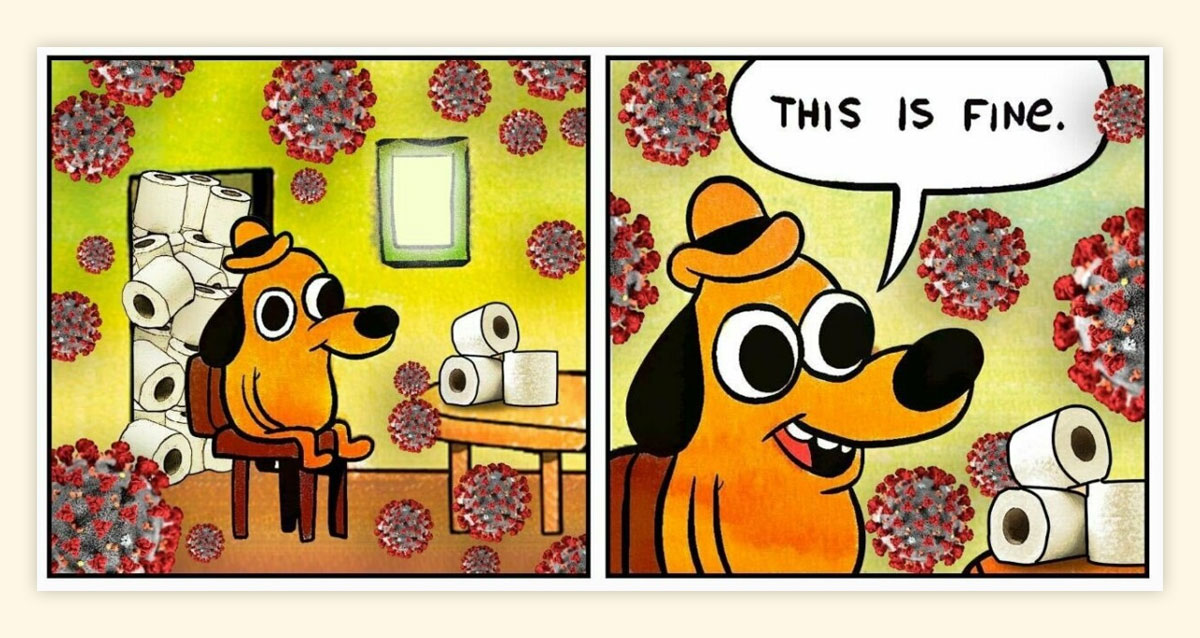Over the past couple of months, about a third of the working population of Russia received their first experience of working at a "remote location", in the process of adaptation to which a completely new reality was revealed to many, which turned out to be much deeper and more contradictory than the previously existing ideas about it.

Wikipedia suggests that remote work, or work at home (also remote work; this means freelancing in the absence of a permanent employer) is a form of employment in which the employer and the employee (or the customer and the contractor) are at a distance from each other, transmitting and receiving terms of reference, labor results and payment using modern means of communication.
In other words, this is a form of working interaction between the customer and the contractor, which was deliberately chosen by them for a number of factors - being in different countries, the impossibility of an employee's personal presence in the office, etc.
Plus, each of us (I speak for the IT industry now, and I don’t think that someone’s experience will differ too much from mine) could partially take advantage of the udalenka — work a day or two from home, get sick and spend in a reclining position at the computer a week, to leave for another country, and in which case, without problems, take a laptop and put out fires at the prod - these were and are quite common phenomena in the work of each of us.
Here, of course, it is worth mentioning that “remote work” and “self-isolation” (what we actually faced) are completely different stories.
What we came across this spring was not remote work in its typical sense. Having switched to self-isolation, we found ourselves locked in four walls without the opportunity to live our usual life - to go to the cinema, to a bar, visit our parents or friends, just take a walk in the park - the memories of how it was necessary to make a QR code are still fresh to go to the store or throw out the trash. Those. all the benefits that have been available to us all our lives, working in the office, and guys with remote work, at once ceased to be available.

For many, communication in the office is a familiar part of the routine, which brings variety to the working day, enlivens it. The presence in the office allows you to share doubts and worries, to express emotions associated with work moments and to receive live support and feedback. And for people who, for some reason at the current stage of life, live alone and are not in a relationship, guys at work often make up a large part of the circle of friends and serve as a key source of emotional support.
Well, here it is worth considering in addition the fact that we no longer work in the same room, we do not meet for regular 1-1 personal meetings, which makes us less confident in the signals we receive from our leaders, because many of our communications are built on body language - facial expressions, movements of the hands, the posture taken when talking with others (yes, everyone remembers the closeness of the interlocutor, when his hands are folded on his chest).

If you delve into the neurochemical side of the issue, probably the word “oxytocin” is no longer new to anyone. In short, it is a social neurotransmitter that we need to feel happy. He gives us a sense of support and unity, rallies in the face of troubles and catastrophes, and his lack leads to wars and divides so much that we cease to empathize with each other. But touching people we like, with whom we hug, shake hands, even just being in the same room with those who are humanly sympathetic to us - this is all about oxytocin.
Large-scale study of neuroeconomist Paul Zack (a brief literary content of which is in this TED talk) showed that if information in a company is distributed freely, widely, meaningfully and vividly, relations between colleagues are built purposefully, and managers openly ask for support, then people's involvement in work increases by 76%, the energy of employees - by 106%, and productivity - by 50 %. Also, the satisfaction of employees with their lives increases by 29% and the number of burnout episodes decreases by 40%. Zach has tested the blood levels of oxytocin in thousands of employees from different industries and cultures and found that trust and commitment to a goal mutually reinforce each other, creating a mechanism to increase oxytocin over a longer period. Thus, vibrant, strong and active communities, real peer support, are an important component of happiness and a cornerstone of sustainability.
,

?
Previously, when everyone was sitting nearby, you could just turn around and ask something. Now go and figure out whether the person is free, what his mood is, whether he is ready to communicate. The work, which directly depends on direct contact with people, has become more complicated: it is more difficult to establish emotional contact and establish trusting relationships by video communication or during a telephone conversation.
And Zoom Wine Meetings, which quickly enough conquered the minds of people who were hungry for communication and emotional contact, just disappeared just as quickly.
As a result, the lack of oxytocin began to progress, the first alarming symptoms appeared like not knowing what to do with yourself, when all the work was redone, the whole apartment was cleaned, all the tea was drunk, and the movie was already nauseous.
Already now, many people who were forced to switch to remote work and self-isolate due to coronavirus have a fairly large number of people who are diagnosed with decadent states, which are associated not only with a lack of oxytocin, but also with the fear of contracting and anxiety about their financial condition.
In the first quarter of 2020, the demand for professional psychological assistance in Russia has grown at a record : a jump of 400 percent compared to the same period last year. At the same time, from the end of March to mid-May, the popularity of specialists increased by 69 percent compared to 2019.

Judging by a number of studies, the working hours of employees in many companies in Russia have increased during the pandemic - by an average of at least two hours. This is easily explained by the fact that a person stopped spending time on the road from home to office and back. World statistics in March were issued by Bloomberg : working from home amid a pandemic led to the fact that people began to devote more time to it every day. In the United States, employees increased their working hours by an average of almost 40%, adding 3 hours to it. This, by the way, is the largest increase in the whole world.
Facebook and the Internet this spring was full of posts from CEOs of different companies with the description that the udalenka is cool, they say, after the end of the coronavirus pandemic, we generally think about not returning people to the office. I will not go into serious economic forecasts and calculations for the future now, which, IMHO, is still too early to do, but I’m scolding that it was based on cost savings for office rent and other pleasures of life, providing employees with pleasant leisure time at work, as well as initial data on "productivity improvement".
In recent weeks, the rate of infusion of such information has dropped to almost zero. Perhaps this was influenced by the fact that the self-isolation regime was removed, and people still began to return to work in the office. Or the fact that remote work with the same temporarily increased productivity has not justified itself.
Given the specifics of my work (I work as an HR director at DomClick, which currently has about 800 employees), I often and a lot communicate with people. After a series of meetings, which I can call confidential, with our employees, I found out that:
- the remote atmosphere lacked the atmosphere of an office and a well-equipped workplace equipped with the necessary equipment;
- household chores and households soon began to knock off the working mood;
- after a while, a strong lack of communication with colleagues began to be felt - both on work issues and on informal issues: go to lunch, smoke, etc.

By the way, here's an example of the dynamics of deployments of our developers. In April, a clear increase in activity is seen, but by June it returned to pre-quarantine levels again. Apparently, people started to have a nice warm summer weather, which was multiplied by fatigue from continuous housework - and this is the result. It is also worth adding that during the May holidays, people's productivity also sank, and then shops, bars and restaurants began to open, which also shifted the focus of people to personal. And now we again see an increase in work activity, which is due to the fact that employees began to go to work in the office.
In general, there is a persistent feeling that the massive forced transition to remote work that happened to us this year can be called an interesting but contradictory experience, both for each person individually and for the business as a whole. It remains only to observe what will happen to us in the new post-coronavirus realities.
In total, several conclusions on the article:
- Drawing hasty conclusions about how cool it would be for all companies to work remotely as much as possible is quite reckless today. It is worth remembering that temporarily increased productivity and the number of hours worked may be followed by a sharp decline due to psychological distortions of employees.
- , , , , ( ). , , — .
- , 2021 , , . - , , .
- — , — , . , /, .
- . , , , , . , , . , , .

It will be interesting to hear in the comments your stories of the forced spring udalenka, both of individual employees and companies - how was the transition given, what do you think about the prospects of such work for yourself in the future? How much did the period of self-isolation affect your emotional state?
Thank you for your attention and don't get sick. Neither coronavirus nor cuckoo!